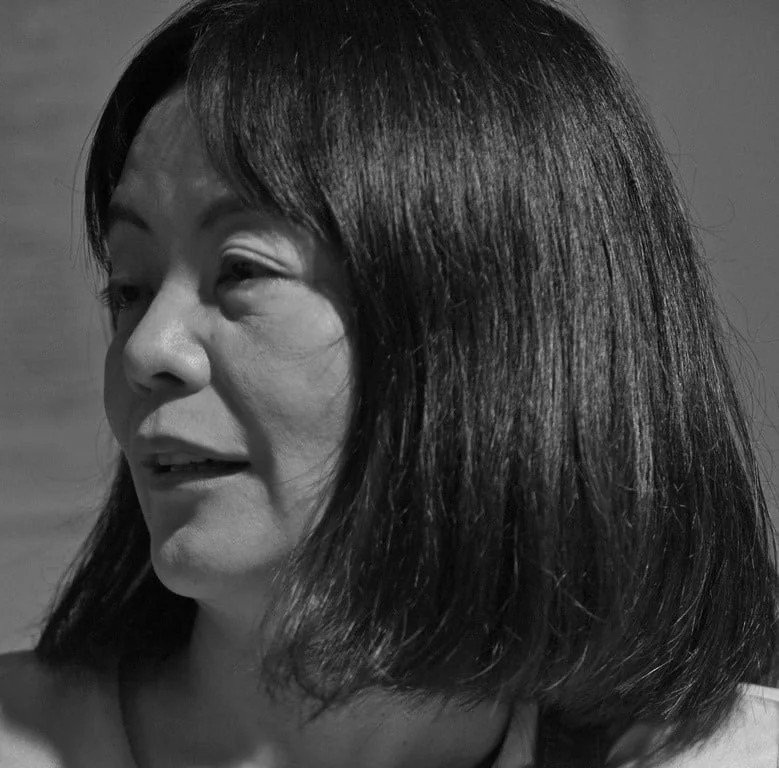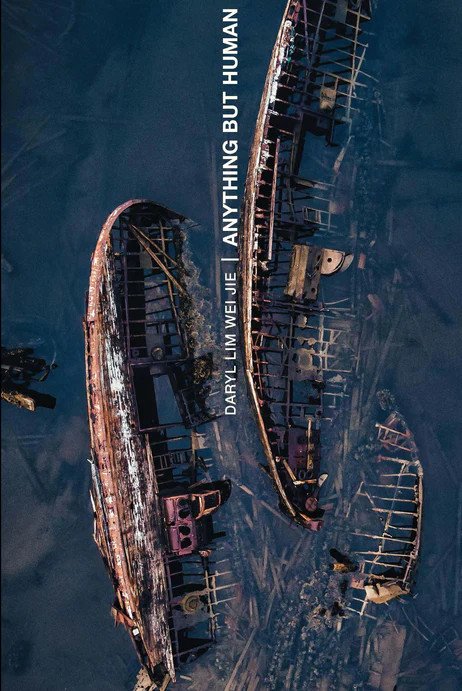TSLR Online Collection
Browse all TSLR Online articles by category.
“Shoe” by Sarah Arvio
Sarah Arvio is the author of night thoughts: 70 dream poems & notes from an analysis, Sono Cantos, and Visits from the Seventh. Her most recent work is a translation of poems and a play by Federico Garćia Lorca, Poet in Spain.
Mire Lee “Look, I’m a fountain of filth raving mad with love”
Mire Lee is (b. 1988) lives and works between Seoul, South Korea, and Amsterdam, Netherlands. She earned a bachelor’s degree from the Department of Sculpture (2012) and a graduate degree in media art (2013) at the Seoul National University College of Fine Arts. Her recent solo exhibitions include Black Sun (2023) at the New Museum, New York; Look, I’m a fountain of filth raving mad with love (2022) at ZOLLAMTMMK, MMK Frankfurt; HR Giger & Mire Lee (2022) at Schinkel Pavillon, Berlin; and Carriers (2020) at the Art Sonje Center, Seoul.
“Supernatural Bread” by Gregory Pardlo
Read "Supernatural Bread," a powerful poem from Pulitzer Prize-winning poet Gregory Pardlo’s 2024 collection Spectral Evidence, which into themes of devotion, beauty, art, and the criminalization of Black bodies, reflecting on justice and how these issues are woven into our present, our history, and the Western canon.
Review of Mark L. Clifford’s 𝐿𝑒𝑡 𝑇ℎ𝑒𝑟𝑒 𝐵𝑒 𝐿𝑖𝑔ℎ𝑡: 𝐻𝑜𝑤 𝐸𝑙𝑒𝑐𝑡𝑟𝑖𝑐𝑖𝑡𝑦 𝑀𝑎𝑑𝑒 𝑀𝑜𝑑𝑒𝑟𝑛 𝐻𝑜𝑛𝑔 𝐾𝑜𝑛𝑔
Mark L. Clifford's Let There Be Light explores the pivotal role of electrification in Hong Kong's 20th-century success, detailing how a power company and its visionary founder fueled postwar economic growth, spurring political and social change amid Hong Kong’s evolving relationships with China and the UK.
Leta Hong Fincher on “Leftover Women” and Feminism in China
In February 2024, TSLR sat down with Leta Hong Fincher, a leading voice in the intersection of gender and social change in China. As an acclaimed journalist and scholar, Fincher’s work sheds critical light on the complexities of women’s rights, feminism, and the intricate power dynamics at play in modern Chinese society.
Observing China: The Chan Method and the Anxiety of Knowing Without Speaking by Yan Lianke
Yan Lianke, Chinese author, novelist and professor of Chinese literature at Renmin University in Beijing, examines contemporary China through the precepts of knowing without speaking, speaking without exposing, and using mountains as lakes and mulberry trees as locust trees.
CRAZY FISH SING. 𝐴 𝑆𝑜𝑢𝑠 𝑅𝑎𝑡𝑢𝑟𝑒 𝑜𝑓 Still Here
Film scholar and documentary film maker Simone Brioni introduces Crazy Fish Sing, a visual art book inspired by Suranga Katugampala’s forthcoming film Still Here.
“Li Jing’s Drama 𝑅𝑜𝑛𝑔 𝑌𝑖’𝑠 𝐶𝑜𝑎𝑡: Addressing China’s Moral Crisis”
Li Jing (李静, b. 1971) is a prominent Chinese playwright and literary critic, currently serving as the editorial director of Beijing Daily (北京日报). Her third play, Rong Yi’s Coat (戎夷之衣, 2022), is now available in translation by Dr. Andreea Chirita, a Chinese Studies lecturer at the University of Bucharest.
Echoes, Circles, and Aches in Jesse Nathan’s 𝐸𝑔𝑔𝑡𝑜𝑜𝑡ℎ
Writer and musician AM Ringwalt reviews Jesse Nathan’s debut poetry collection Eggooth (2023), describing how Nathan wields refrain as a structural and sonic device as well as an urgent means of reconciling with family history, geographic place, and past and present selves.
“Writing a letter” by Ling Shuhua
Award-winning translator Nicky Harman introduces Chinese modernist woman writer Ling Shuhua (1900-1990) and her story “Writing a letter.” Active in literary and artistic circles of the 1920s and 1930s, Ling Shuhua was unique in having close connections with the Bloomsbury group; she was friends with Virginia Woolf, Vanessa Bell and Vita Sackville-West.
Remembering Maung Hmek aka Shwe Yoe aka James C. Scott (1936-2024)
Burmese poet ko ko thett remembers James C. Scott, Sterling Professor of Political Science and Professor of Anthropology at Yale University. Professor Scott was a comparative scholar of agrarian and non-state societies, subaltern politics, anarchism, and high modernism. He also helped to revive the Independent Journal of Burmese Scholarship.
“Language is always there in front of me.” An Interview with Yoko Tawada
“Languages never have to die. People can forget them, but they do not die. Language is not organic. The important thing is that we perceive it as organic. Language can also express male and female genders on different levels, but language itself is neither male nor female, which is a great liberation for me.”
Taking it Litterally. Daryl Lim Wei Jie’s 𝐴𝑛𝑦𝑡ℎ𝑖𝑛𝑔 𝐵𝑢𝑡 𝐻𝑢𝑚𝑎𝑛 as a Trash Course in Modern Civilization
Scholar and translator Joanna Krenz reviews Singaporean poet Daryl Lim Wei Jie’s poetry collection Anything But Human (2021).
The Man Who Would Become Orwell. On Paul Theroux’s Novel 𝐵𝑢𝑟𝑚𝑎 𝑆𝑎ℎ𝑖𝑏
Eric Arthur Blair, the 19-year-old Eaton graduate who would become George Orwell, arrived in Burma (Myanmar) in 1922. For the next five years, he worked his way up the Imperial Police hierarchy, eventually becoming an assistant police superintendent. His posts took him to towns and villages infested with mosquitos, brothels, nationalists, thieves, and roaming armed gangs.















